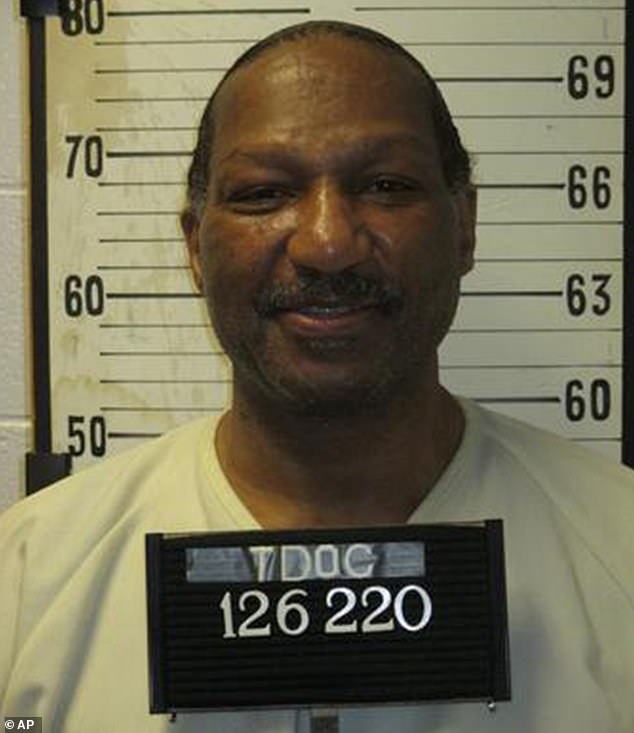
A Tennessee man screamed out in pain as he was executed on Tuesday for the 1988 sho0ting de@ths of his girlfriend and her two young daughters.
Byron Black, 69, was k!lled by lethal injection for the de@ths of Angela Clay, 29, and her daughters, Latoya, nine, and Lakeisha, six.

According to Mail Online, he spent the morning participating in a church service inside his cell, and had his final meal at 4.45 am, comprising pizza with mushrooms and sausage, followed by doughnuts and butter pecan ice cream.
As the pentobarbital flowed through his veins on Tuesday morning, he appeared to be in visible distress as he was strapped to a gurney and covered in a sheet with IV lines running to his body at the Riverbend Maximum Security Prison in Nashville, according to the Tennessean.

Just two minutes after the curtain to the execution room swung open, Black could be heard sighing heavily and breathing heavily. He also lifted his head off multiple times before eventually telling his spiritual advisor: ‘It’s hurting so bad.’
‘I’m so sorry. Just listen to my voice,’ Rev. Monica Coakley responded before singing to comfort him.
Black was then pronounced dead at 10.43, about 10 minutes after the execution started, and he talked about being in pain.
Black was sentenced to death in 1989 for the shooting de@ths of Clay, his girlfriend, and her daughters.
Prosecutors have said he shot them in a jealous rage after he learned that Clay was considering reconciling with her estranged husband, Bennie Clay, whom Black had sh0t the year before.
He was on work release from a Nashville jail, where he had been serving two years for the shooting, at the time of the murders.
Clay’s sister said Black will now face a higher power.
‘I thank God for making this happen,’ Linette Bell, Angela Clay’s sister, said in a statement read by a victim’s advocate after the execution.
‘His family is now going through the same thing we went through 37 years ago,’ she continued. ‘I can’t say I´m sorry because we never got an apology. He never apologized, and he never admitted it.’
But Black’s longtime attorney Kelly Henry claimed the state ‘killed a gentle, kind, fragile, intellectually disabled man in a violation of the laws of our country simply because they could.’
She also argued ‘no one in a position of power, certainly not the courts, was willing to stop them following a back-and-forth in court over whether officials would need to turn off his implantable cardioverter-defibrillator, or ICD during the proceedings.
Henry had argued in court that the defibrillator would likely shock Black repeatedly during the lethal injection process if it were not properly deactivated.
Black’s lawyers also unsuccessfully tried to get a new hearing about an intellectual disability they said Black has exhibited since childhood, with an IQ below 70.
They stipulated in court documents that Black would be deemed ineligible for the death penalty if a new hearing was held, and in 2022, Davidson County District Attorney Glenn Funk asked a judge to vacate his death sentence.
But the courts ultimately denied the appeal, ruling that the state’s current intellectual disability law does not apply to those who have had their competence adjudicated previously, and Black’s mental capacity was first brought up before his 1989 trial.
Black’s attorneys then appeared to gain a small victory when the Davidson County Chancery Court ruled in favor of Black having his defibrillator disabled before the execution.
Judges ruled that the inmate could be ‘subject to the severe pain and suffering of having his heart repeatedly shocked back into rhythm during his execution,’ NBC News reports.
But Tennessee’s Supreme Court overturned that decision Thursday, saying the other judge lacked authority to order the change.



